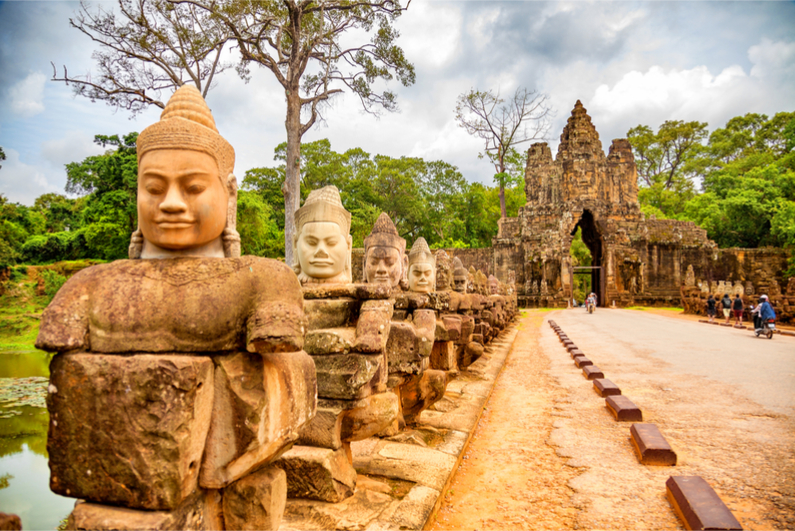The number of gambling licenses granted to casinos in Cambodia by the end of 2018 had risen to 150 due to an increase in gambling operators.
A report in the Phnom Penh Post cites figures from Cambodia’s ministry of economy and finance, which indicate that 2018 saw a 53% increase in the number of licensed casinos in the country. This is compared to 2017, which saw end-of-year licensed casinos amounting to 98.
However, despite the number of licensed casinos in Cambodia, the deputy director-general of the ministry’s General Department of Financial Industry, said that it doesn’t yet have the total amount of revenue collected from the casinos in 2018.
Ros Phirun said: “We have not finalised it [the report] yet, but we targeted the collection of $56m this year [2018]. We are actively drafting the law to govern casino and gambling businesses, and when it is finalised and ready to be activated we hope revenue from the sector will be bigger.”
He also noted that gambling operators are required to pay a $40,000 yearly license fee.
A concern or a positive impact?
The region that is experiencing the rise in casino gambling is the Sihanoukville Pprovince. Located in the southwest of Cambodia, it is known for its tropical islands, beaches and mangrove jungles. Along the provincial coast there are 88 licensed casinos. This is one area that is undergoing development, noted by the high-rise apartments, shops and restaurants that are being built.
Yet, while locals are barred from entering and betting in casinos, the report adds that according to Or Saroeun, a spokesperson for Sihanoukville Province, they will produce a positive impact on the people of Cambodia.
Saroeun said: “Cambodian people are benefiting from the business directly as they can supply food, vegetables, meat and fish to meet the increasing demand from gamblers and investors. People will also indirectly benefit from the growing casino business through economic development resulting from increased government tax revenue.”
Of course, while this will surely help the nation, there are also fears that it will produce a negative effect, in particular an increase in drinking and fighting within public places.
For San Chey, executive director of the Affiliated Network for Social Accountability, the number of casinos in Cambodia isn’t something that should be looked upon favorably.
“I’m afraid that casino businesses will serve as a channel for money laundering and human trafficking, or become a source of social problems,” he said. He also noted that Cambodians are losing money through casino gambling despite not being permitted to bet in them.
Growing concern for many
Betting in casinos remains a popular pastime for millions of people worldwide. Unfortunately, while it creates the allure of bringing millions of dollars into people’s lives, the loss that goes with it is conveniently ignored.
Because of this, calls have been made within various jurisdictions for more to be done to tackle the issue of problem gambling. For instance, in September, the Gambling Policy Division of the Irish Department of Justice signed an international declaration expressing its concerns regarding the risks of gambling in video games on young children.
In October, the UK’s Lord Chadlington called for a ban on gambling advertising during live sporting events. Since then, the whistle to whistle ad ban has been put into place following increasing pressure for more to be done to protect young viewers and problem gamblers.
Not only that, but in November voters in Florida voted in favor of blocking the expansion of casino gambling. By doing so, any proposed casino plans in the state will first have to receive 60% of voter approval before any work can go ahead.
These are just a few instances where action is being taken to remedy the impact of gambling. Yet, it’s only a small step toward solving a major problem.
